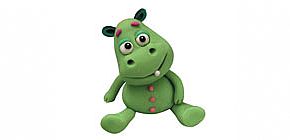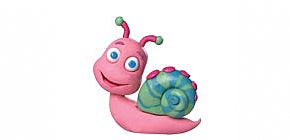Iron for Infants
A Tiny Drop (Tip Tipa) of Information on Iron for Infants
There has been an increase in the awareness towards the importance of proper nutrition in recent years, ensuring that more and more people are exposed to important facts about the nutritional ingredients they should be ingesting.
One of te most commonly known facts isn that iron is one of the most important building blocks of the human body, and should be regularly consumed. This is true for adults and infants alike, as iron is responsible for the transportation of oxygen to each and every cell and organ in the body. As such, administering an iron supplement to your infant is important from an early age.
Iron for infants - from what age?
During the first months of life and until the age of two, the infant undergoes extremely rapid development. One of the important organs do quickly develop during this period is the infant’s brain, which, like all the other organs and cells, needs lots of oxygen to grow and develop. As such, it is extremely important to administer iron drops to infants from the age of 4 months.
Health Ministry guidelines regarding iron supplements for infants
Five years ago, the Health Ministry issues a new guideline regarding administering iron supplements to infants in Israel: infants should be given iron supplements from the age of 4 months to 18 months, and all infants should take a blood test at the age of 9 months, to rule out anemia. Click here to read the Health Ministry’s recommendations with respect to iron-deficient anemia.
What was the reason behind the issuing of the new guideline? There are a few. First, new studies show that the infant is born with an iron store capable of sustaining them for the first 4 months of life. From the age of 4 months, it is up to the infant’s caregivers to ensure they receive adequate iron from the food they eat (7.5 mg of iron a day until the age of 6 months, 15 mg of iron a day from 6 months on). Second, it has become evident that specifically in Israel, half of the country’s infants suffer from anemia at one year of age. As the food the infant eats does not provide them with the necessary amount of iron, the Health Ministry recommends adding an iron supplement to the infant’s daily diet.
Breastmilk and formula aren’t enough?
Which iron supplement is recommended for infants? In the past, it was commonly believed that breastmilk or infant formula supplied the infant with their daily required dose of iron. After all, breastmilk contains up to 1 mg of iron per liter, and some formulas contain up to 12 mg of iron per liter. However, the problem isn’t how much iron is ingested, but rather how well it is absorbed by the body.
Over the years, it has become evident that iron consumed from food is not fully absorbed. For example, only about 10% of iron from animal products is absorbed by the body, and when talking about iron from plant sources, that number is even lower. The iron consumed from breastmilk is about 50% absorbed and is more highly recommended that iron from formula.
Why do nursing infants absorb iron better than formula-fed infants? First, breastmilk contains higher concentrations of vitamin C than formula, a nutrient known to encourage the absorption of iron by the body. Second, formula contains cow’s milk (as a partial breastmilk substitute), and its proteins can inhibit iron absorption in the intestines, due to certain sensitivities.
If your infant is formula-fed, be sure to select an iron-enriched variety.
It is also important to know that some infants are considered at greater risk to suffer from an iron deficiency and develop anemia:
-
Infants born weighing less than 3 kg
-
Infants born to diabetic mothers
-
Infants born before Week 39
-
Infants who do not ingest an iron-enriched formula
How to identify if your child is anemic
Iron is an important ingredient in your infant’s development and helps keep them healthy. An iron deficiency can inhibit your infant’s development, skills and even learning abilities later on in life. As the infant’s rate of growth and development is constantly on the rise and iron stores naturally deplete, an iron deficiency can lead to the development of anemia, which, in turn, can lead to the appearance of the following symptoms:
- Exhaustion
- Weakness
- Restlessness
- Reduced appetite
Iron-rich foods that are recommended for mother and child
For the infant:
-
Sweet potato
-
Prunes/plums
-
Peaches
-
Almonds
-
Peas
-
Lentils
-
Beef stew
-
Whole grain rice
It is also important to match the way you serve the food to the infant’s age and mash, puree, or cook (so complete softness) as needed. This will help your infant “score” natural sources of iron. Also important, serve iron-rich foods with vitamin C-rich foods, like spinach, oranges, tomatoes, cauliflower, broccoli and others.
For mom: -
Beef
-
Fish
-
Eggs
-
Pistachios
-
Whole seasame
-
Tahini from whole sesame
-
Chickpeas
-
Lentils
-
Peanuts
-
Peas
Types of iron supplements for infants and how they differ from one another
Hydroxide Polymaltose Complex - Medication: Iron marketed as a medication after undergoing clinical testing, meriting the approval of medical institutions, and continuing to be monitored by medical professionals.
Hydroxide Polymaltose Complex - Nutritional supplement: Iron that has not necessarily undergone clinical testing and therefore does not contain any medical markings on the packaging.
Ferrous Gluconate - Iron salts linked to gluconic acid, marketed as medications and as nutritional supplements. Many nutritional supplements contain iron salts and should be ingested on an empty stomach - a problematic limitation when referring to four-month-old infants, who eat throughout the day and still need iron supplements on a regular basis.
An infant who does not receive the necessary dose of iron will start off by developing symptoms of anemia (tiredness, weakness, lack of appetite) and may later suffer from cognitive development delays. There are currently different types of iron supplements for infants and children, so be sure to select one that has been clinically proven.
Other articles on this subject:
Nerves of steel - sometimes, that’s what it seems parents need when charged with the task of giving their infants their daily iron supplement. The infant protests, the parent insists, and the iron sprays in all directions. Sound familiar? It doesn’t have to be your reality.
|

- 1
- 2


.jpg)
.jpg)
.jpg)
.jpg)



.jpg)
.jpg)
.jpg)
.jpg)

.jpg)
.jpg)
.jpg)
Contact us